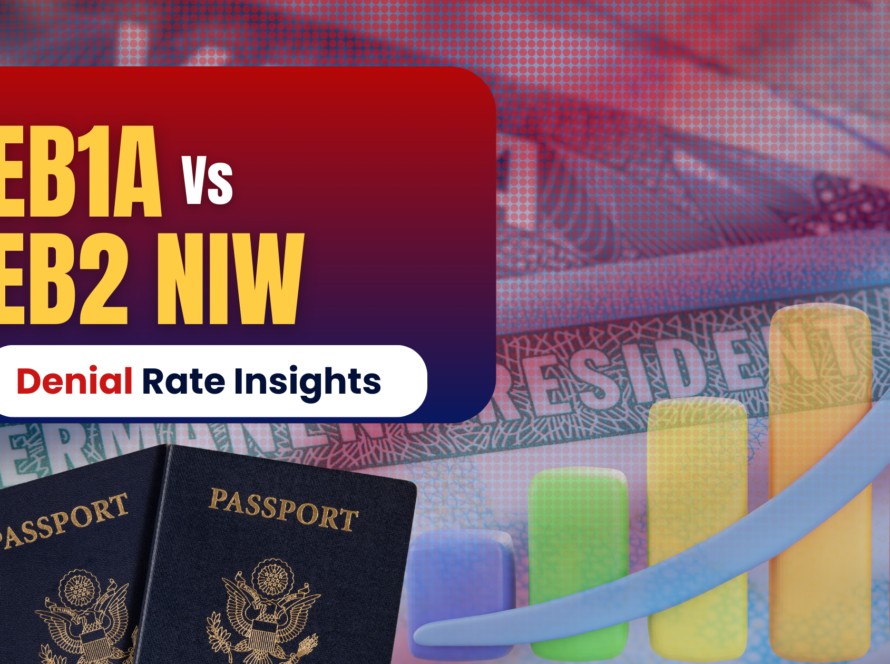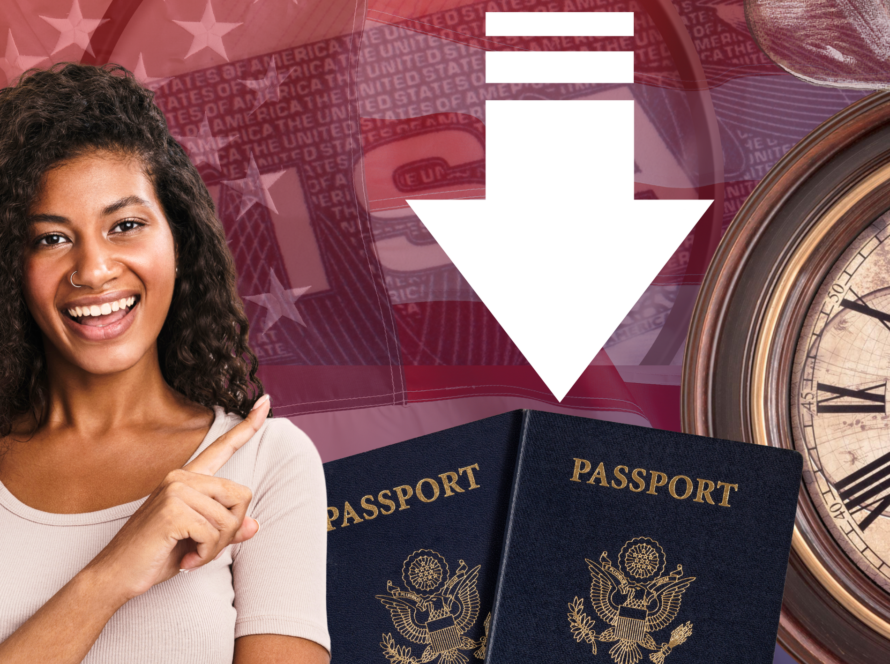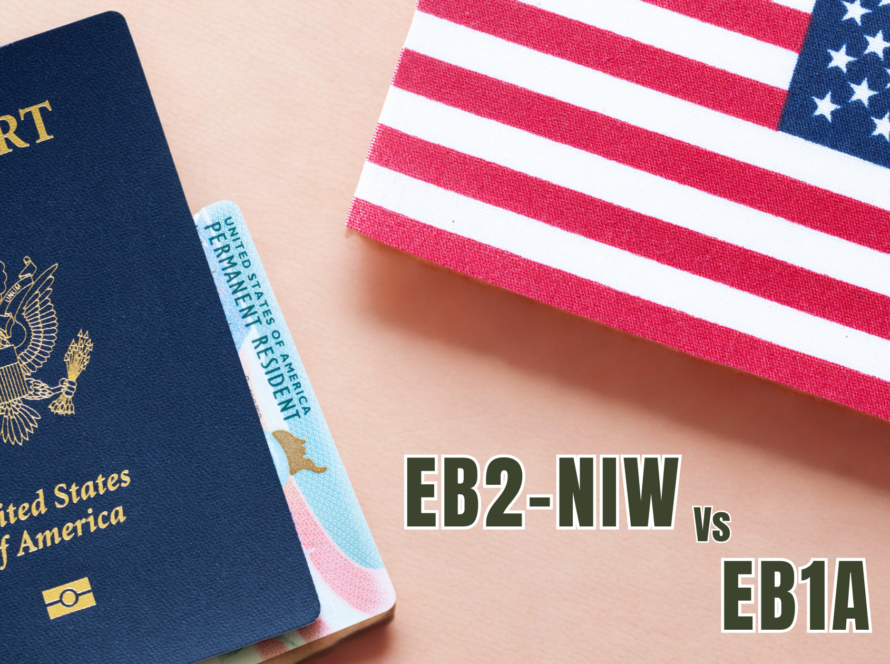
EB1A visa criteria were designed for individuals who have earned national or international acclaim in their field. For foreign professionals, the EB1A visa opens a path to residency based entirely on personal achievements and national or international recognition.
Unlike most employment visas, EB1A allows applicants to self-petition without depending on a company or labor certification process.
Why Foreign Workers Should Consider EB-1A Sponsorship
The EB1A criteria matter because they let you bypass traditional sponsorship requirements. Most employment-based visas demand a U.S. employer and a labor certification. With EB1A, your own accomplishments serve as the foundation for your green card application.Foreign workers who want independence will find EB1A visa criteria especially valuable. It provides the freedom to continue building a U.S. career without being tied to a single employer or position.
Why Foreign Workers Should Consider EB-1A Sponsorship
Applicants can meet EB1A criteria in two distinct ways. They may prove eligibility by earning one major internationally recognized award, or by fulfilling at least three of ten evidence categories established by USCIS.
Under EB1A visa criteria, the focus is on showing sustained acclaim either nationally or internationally. Because few people hold singular awards, most applicants rely on the three-out-of-ten evidence approach.
EB1A Criteria Explained in Depth
There are two ways a person can be eligible to file for EB1A:
- If they have a one-time achievement (such as a Pulitzer, Oscar, or Olympic medal) as well as evidence showing that you will be continuing to work in the area of your expertise.
2. If they meet 3 out of the following 10 requirements for exceptional ability:
1. Major Awards
Winning a globally recognized award is the most straightforward way to qualify for the EB1A visa, however, smaller, yet respected awards also support a petition. USCIS has clarified that even team awards may count if the applicant can demonstrate their personal role was critical to the success.
2. Professional Membership
Joining an exclusive professional group can also satisfy EB1A visa criteria. Such organizations usually require outstanding achievements for admission, making membership itself a sign of recognition.
Foreign workers can strengthen their case with evidence of belonging to academies, societies, or associations that only accept accomplished individuals. USCIS even allows past membership to qualify as valid evidence.
3. Published Media Coverage
Being featured in major media outlets is another recognized category. Articles, profiles, or interviews that highlight your work confirm visibility and influence in your field.
Foreign workers can present newspaper features, industry journal articles, or television coverage. USCIS policy confirms that coverage alone is enough and does not need to include detailed analysis of your impact.
4. Judging the Work of Others
The EB1A visa criteria include serving as a judge, reviewer, or panelist in your field. This proves that respected organizations trust your expertise enough to evaluate the work of your peers.
Foreign workers can use evidence such as reviewing academic papers, judging competitions, or sitting on grant panels. This role demonstrates leadership and recognition of your ability by other professionals in your industry.
5. Original Contributions
Introducing innovations or discoveries that transform your field can be powerful evidence. USCIS recognizes substantial original contributions as a key marker of extraordinary ability.
Foreign workers should present documentation showing how their work changed practices or created new standards. Supporting materials may include patents, citations, or media coverage describing the impact.
6. Authorship of Scholarly Work
Publishing books or peer-reviewed articles demonstrates intellectual leadership and satisfies the EB1A visa criteria according to USCIS. It counts scholarly publications in respected outlets as solid proof of accomplishment.
Foreign professionals can provide journals, books, or technical articles widely cited by others. These publications highlight expertise and confirm recognition from fellow experts in the field.
7. Artistic Exhibitions or Showcases
The EB1A criteria cover artistic fields by recognizing exhibitions or showcases of your work. Public display or performance at respected venues demonstrates that your work has reached an influential audience.
Foreign workers can submit evidence of gallery shows, theater productions, or festival screenings. Although this criterion is specific to the arts, comparable achievements may be accepted for other professions.
8. Leadership Roles
Holding a critical role in a respected organization demonstrates influence. Positions where your contributions directly shaped success can be counted toward EB1A.
Foreign applicants can show evidence of senior roles, department leadership, or executive-level positions. The reputation of the organization and the importance of the role must both be documented.
9. High Salary or Other Compensation
Exceptional pay compared to industry peers is another accepted visa criteria for EB1A. USCIS treats high compensation as proof of strong demand for an individual’s abilities.
Foreign workers may provide contracts, salary surveys, or pay stubs. The comparison with others in the same profession matters more than raw earnings alone.
10. Commercial Success in the Performing Arts
The EB1A visa criteria also include commercial success for performing artists. High box office earnings, album sales, or streaming numbers can prove that your work has gained broad recognition and significant audience impact.
Foreign professionals in entertainment can rely on evidence such as box office reports, music charts, or film distribution records. This proves both recognition and financial success tied to your work.
Using Comparable Evidence
Not all applicants fit into the ten listed categories. USCIS allows comparable evidence when it demonstrates the same level of distinction and acclaim.
Foreign workers may adapt this option for their industry. For instance, entrepreneurs might submit startup valuations, while digital creators could rely on global audience data or analytics.
The EB1A criteria were created to identify professionals who stand at the top of their field. For foreign workers, the EB1A visa criteria offer independence, flexibility, and a faster path to U.S. residency based entirely on your accomplishments.
FAQ: EB-1A Criteria
Do I need a sponsor to apply for EB1A?
No. Unlike many employment visas, the EB1A criteria allow self-petitioning. This means foreign workers do not need a U.S. employer or labor certification to apply. Your accomplishments are enough to sponsor your own green card.
How many EB1A visa criteria must I meet?
Most applicants satisfy at least three out of ten categories. The EB1A visa criteria include awards, memberships, media coverage, leadership roles, high salary, and more. USCIS also accepts comparable evidence if the listed categories don’t fit perfectly.
Is it hard to get approved under EB1A criteria?
Yes, the process is highly competitive. The EB1A criteria require strong, well-documented proof of extraordinary achievement. USCIS looks for consistent acclaim at the top of your field, not just local recognition or short-term accomplishments.
Ready to Move Forward with Your EB1A Application?
You don’t have to figure it all out on your own. At My Green Card Story, we specialize in guiding EB1A applicants with expert, personalized support every step of the way.
Book your consultation today and take the next step with confidence.
For official guidelines and eligibility details, visit the USCIS website.
Let’s make Your EB2-NIW & EB1A journey a success! Stay connected with us! Follow My Green Card Story on all our socials for the latest updates, tips, and inspiring success stories. Got questions? We’re here to help!



